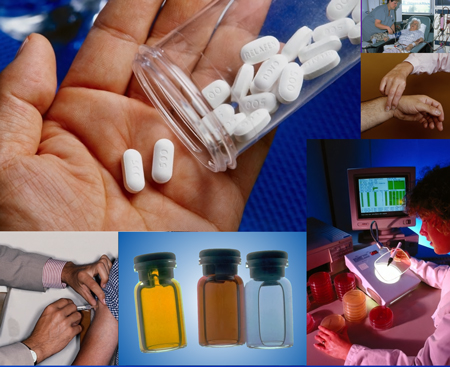 The use of Applied Statistics for FDA Process Validation is considered a matter of very high importance in the pharmaceutical industry. The FDA’s guidance for the industry, which it called “Process Validation: General Principles and Practices”, was set up in 2011. This guideline sets the framework for Process Validation in the pharmaceutical industry. The FDA prescribes a three-stage process that any organization in the pharmaceutical industry has to set up:
The use of Applied Statistics for FDA Process Validation is considered a matter of very high importance in the pharmaceutical industry. The FDA’s guidance for the industry, which it called “Process Validation: General Principles and Practices”, was set up in 2011. This guideline sets the framework for Process Validation in the pharmaceutical industry. The FDA prescribes a three-stage process that any organization in the pharmaceutical industry has to set up:
- Process Design
- Process Qualification
- Continued Process Verification.
The Process Design stage, which is called Stage 1, is when the organization defines the commercial manufacturing process. The knowledge that the organization has gained through development and scale-up activities serves as the basis for the development of this definition.
The Process Qualification, or Stage 2, involves evaluating the process design for the purpose of determining if the process defined in Stage I has the capability for reproducible commercial manufacturing.
The next stage of the FDA process validation stage is to determine if the Process Design stage and the Process Qualification stage give the ongoing assurance that the process remains in a state of control during routine production. This is what Stage 3, the Continued Process Verification, does.
Thorough understanding of how to implement Applied Statistics for FDA Process Validation

The ways of using Applied Statistics for FDA Process Validation will be the topic of a two-day seminar that GlobalCompliancePanel, a leading provider of professional trainings for the regulatory compliance areas, will be organizing. At this seminar, Richard Burdick, Emeritus Professor of Statistics, Arizona State University (ASU) and former Quality Engineering Director for Amgen, Inc., will be the Director.
Please visit http://www.globalcompliancepanel.com/control/globalseminars/~produc... to register for this meaningful and highly valuable seminar on applied statistics for process validation. This course has been pre-approved by RAPS as eligible for up to 12 credits towards a participant’s RAC recertification upon full completion.
A methodical approach to implementing statistical methodologies

The focus of this two-day course on Applied Statistics for FDA Process Validation is the various ways by which a systematic approach to implementing statistical methodologies into a process validation program consistent with the FDA guidance can be established.
Dr. Burdick will begin with a primer on statistics, where he will explain how the methods of Applied Statistics for FDA Process Validation seminar can be applied in each remaining chapter.
The two fundamental requirements for Process Validation, namely the application of statistics for setting specifications and assessing measurement systems (assays), will be taken up next.
The next aspect of applied statistics Dr. Burdick will move on to is how to apply statistics through the three stages of process validation as defined by requirements in the process validation regulatory guidance documents.
Since the methods taught through all these three stages are recommended by regulatory guidance documents; this seminar on Applied Statistics for FDA Process Validation will provide references to the specific citations in the guidance documents.
The aim of this learning on Applied Statistics for FDA Process Validation is to lead participants into ways of establishing a systematic approach to implementing statistical methodologies into a process development and validation program that is consistent with the FDA guidance.
Complete learning on Applied Statistics for FDA Process Validation

Over the two days of this seminar, the participants will learn how to:
- Apply statistics for setting specifications
- Assess measurement systems (assays)
- Use Design of Experiments (DOE)
- Develop a control plan as part of a risk management strategy, and
- Ensure process control/capability.
All concepts at this Applied Statistics for FDA Process Validation seminar are taught within the three-stage product cycle framework defined by requirements in the process validation regulatory guidance documents.
Although aimed at the pharmaceutical industry, this seminar on Applied Statistics for FDA Process Validation provides a useful framework for other related industries, as well.
In this important learning on Applied Statistics for FDA Process Validation; Dr. Burdick will cover the following areas:
- Apply statistics to set specifications and validate measurement systems (assays)
- Develop appropriate sample plans based on confidence and power
- Implement suitable statistical methods into a process validation program for each of the three stages
- Stage 1, Process Design: utilize risk management tools to identify and prioritize potential critical process parameters; and define critical process parameters and operating spaces for the commercial manufacturing process using design of experiments (DOE)
- Stage 2, Process Qualification: assess scale effects while incorporating large (pilot and/or commercial) scale data; develop process performance qualification (PPQ) acceptance criteria by characterizing intra and inter-batch variability using process design data and batch homogeneity studies; and develop an appropriate sampling plan for PPQ
- Stage 3, Continued Process Verification: develop a control plan as part of a risk management strategy; collect and analyze product and process data; and ensure your process is in (statistical) control and capable.
You need to be a member of MedTech I.Q. to add comments!
Join MedTech I.Q.